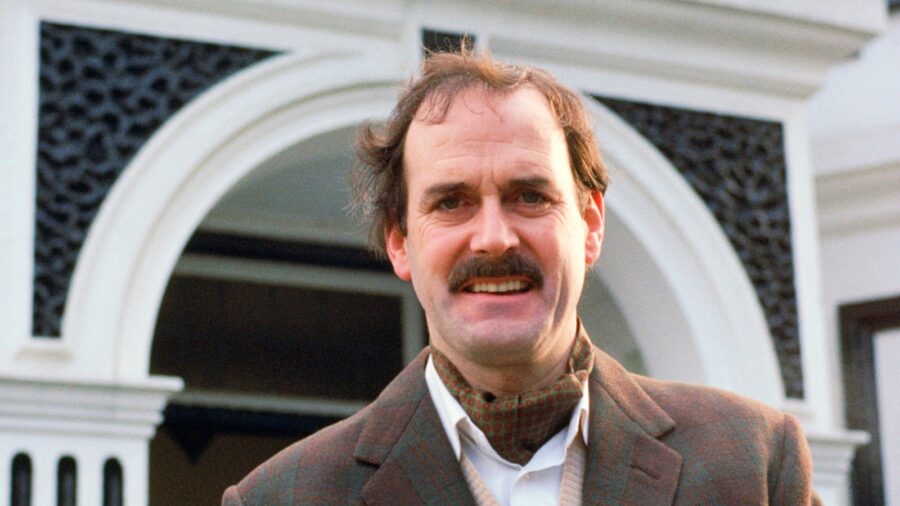John Cleese Is Not A Fan Of This Comedy
John Cleese explains why he considers improv comedy to be inferior to the meticulously scripted comedic writing he has employed throughout his long career.
This article is more than 2 years old

John Cleese is a beloved and classic comedian known for Fawlty Towers and Monty Python, making him a legend in the genre. However, the actor and writer told Harvard Business Review that he is not a fan of improvisational comedy. While he still considers it comedy, he believes the scripted form is more of an art.
The interview went over John Cleese’s career and views on comedy, so when asked about the rise of improv comedy, the comedian was very candid. He talked about how he and his co-writers in Monty Python would write their scripts in pairs and then polish them as a group until they were precise. This resulted in the Monty Python skits and movies that still make us laugh today, from the infamous parrot to the tapestry of sketches that makes the story of Monty Python and the Holy Grail.
When asked his opinion on the rise of improv, John Cleese said, “The delights of improv have always rather escaped me. I don’t know why it’s considered a major art form. I don’t mean that it’s not interesting or skillful. But over the years all the comedians that I’ve respected — I could also say all the comic writers — are people who put words down on paper and went on working on them until they felt they couldn’t improve them anymore. That seems to me the most important and interesting part of comedy. The other is sort of a party trick, which I respect, but it doesn’t seem to me that it should be regarded at the same level. … [Improv doesn’t] really build to any kind of dramatic climax or comedic climax.”
With the amount of effort John Cleese puts into a script, it’s easy to see where his sentiment comes from. In the interview, he also admitted that he re-wrote the Oscar-nominated script to A Fish Called Wanda 13 times before he was satisfied with it. This process included tying together all the narrative, something he says improv comedy doesn’t do.
In fairness to John Cleese, that is the nature of improv. It is a more spontaneous form of comedy that is often based on audience participation, which explains some of its popularity. Viewers like to be involved in what’s going on in a production as the interactive nature makes them a part of the show.

Yet there is also something to be said for a finely-parsed script, as the success of Monty Python has shown. Films such as The Life of Brian and The Meaning of Life are still relevant today and making new audiences laugh alongside longtime fans. John Cleese extended the success of his style of comedy in other shows and movies, as well as a series of business training courses that employ his wry humor to entertain as well as educate.
John Cleese claims he is not a perfectionist, but examines this trait in terms of expectations versus reality. He explained that as long as he puts on a good show, he has achieved his goal, while some would examine all their mistakes afterward and criticize themselves harshly. To him, getting things “perfected” happens before the show, and from there, it’s all up to how the audience responds.
He also believes that comedy is relative to culture. John Cleese explains in the interview that audiences in Kansas find different things funny from audiences in New York and that both locales might disagree with what audiences in London might laugh at. He applies this reasoning to the enduring popularity of Monty Python, which he says appeals to new audiences every generation because the troupe’s absurdity appeals to a young perspective.
The perspective of John Cleese on comedy is one that is no laughing matter, but it is also only one viewpoint of many. While he is an acknowledged comedy genius, his methods are only one way of many to get laughs, as the wide variety of comedy styles attests. However, his enduring style does provide a pathway for future comedians to thrive beyond the improv theaters.











